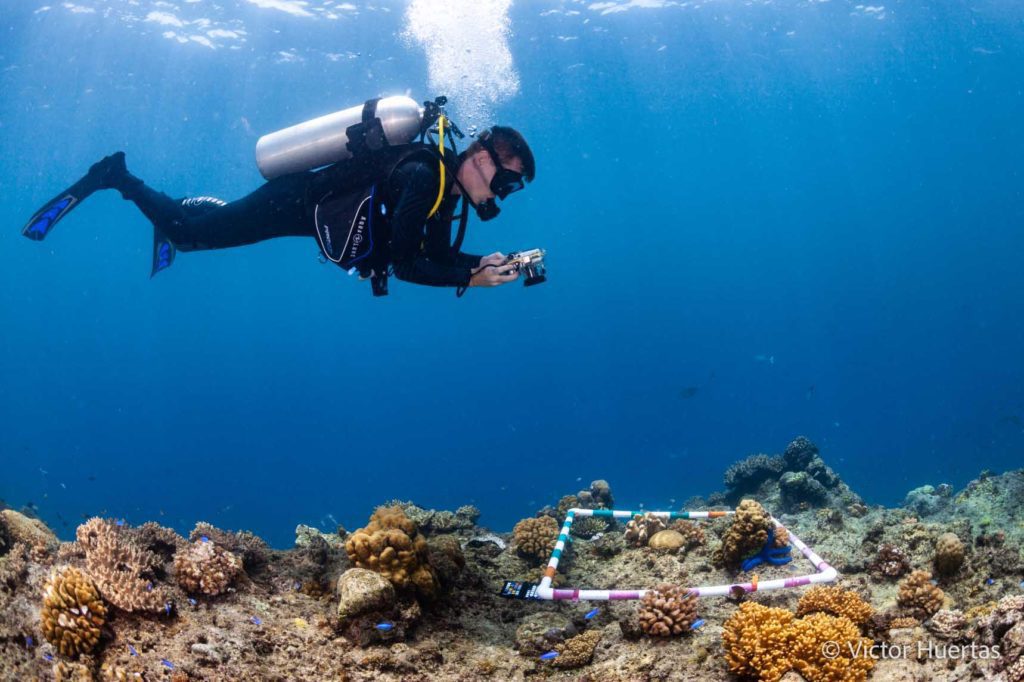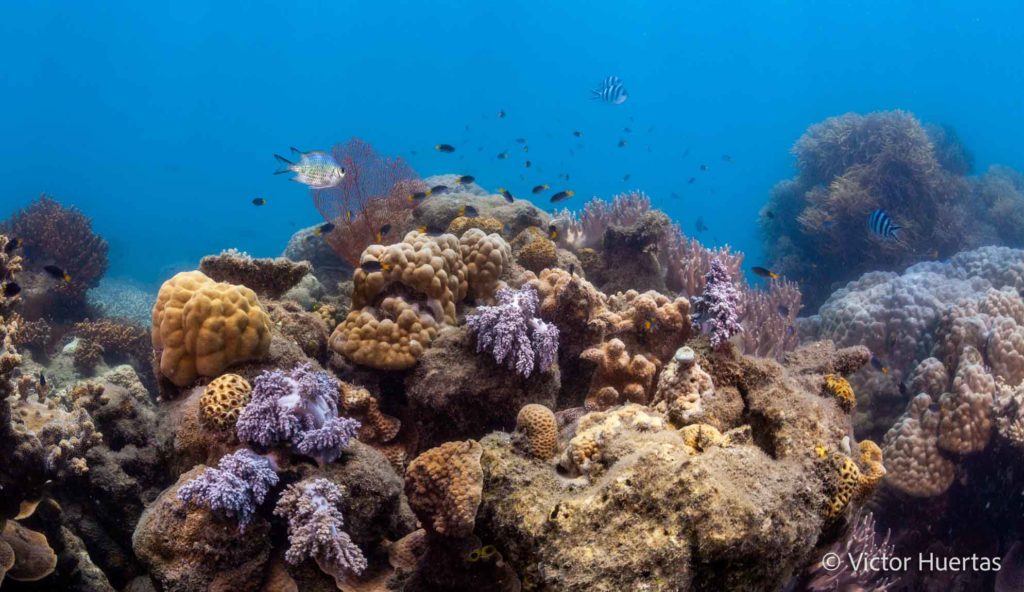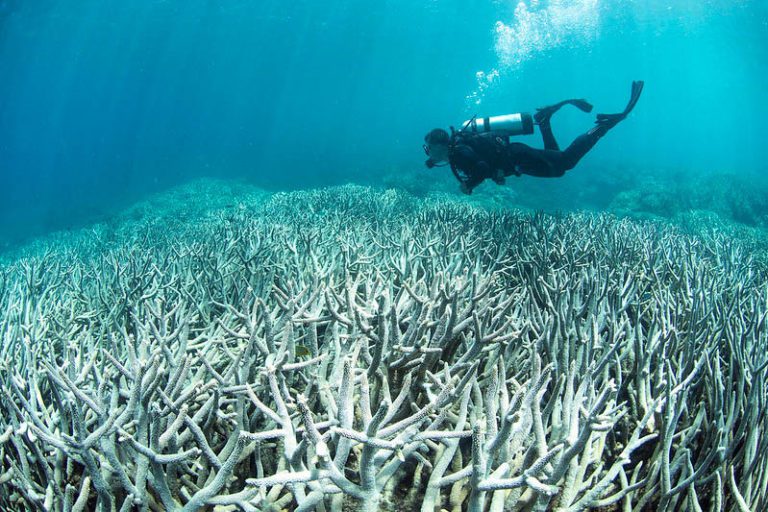A new major coral-bleaching event has occurred on Australia’s Great Barrier Reef – the sixth since the global event of 1998 and the fourth in the past six years. And the underwater heatwave is affecting the reef just as international experts are expected in Queensland to re-assess its World Heritage Site status.
The UNESCO / IUCN monitoring mission visit was scheduled last year, when the GBR narrowly avoided being placed on the List of World Heritage in Danger. At the time Australia was warned that “accelerated action at all possible levels is required to address the threat from climate change in accordance with the Paris Agreement”.
Widespread bleaching damage is now occurring on the GBR at a rate of more than once every two years. “Coral-bleaching is directly attributable to climate change caused by rising global greenhouse-gas emissions,” says Richard Leck, head of oceans at conservation body WWF-Australia. “Reducing Australia’s domestic and exported emissions fast, this decade, is the main solution within our control.”
To have any chance of keeping ocean temperature rises below 1.5°C, it has been calculated that Australia’s domestic emissions must be limited to 4 billion tonnes. Yet according to new independent analysis by Climate Resource scientists commissioned by WWF-Australia, by the nation’s target date for reaching net zero those emissions will be 9.6 billion tonnes.
“We’re going to blow our emissions budget by more than double,” says Leck.
“We expect the IUCN and UNESCO experts will be given an opportunity to witness first-hand what an underwater heatwave does to the reef. It’s not too late for Australia to make changes that give the reef the best chance of survival and avoid downgrading its World Heritage status.”
Colour loss
Meanwhile researchers at James Cook University’s ARC Centre of Excellence, Coral Reef Studies, report that reef fish are losing their bright colours as climate-ravaged corals lose theirs.
Colourful communities of fish have declined significantly since the 1998 bleaching, they say, probably driven by loss of branching corals.
“Reefs these days are becoming increasingly defined by non-coral substrates, especially turf algae,” says Dr Christopher Hemingson, who led the research. “We wanted to investigate what effect this had on the kind of brightly coloured fish people like, and that attract tourists and visitors.”


The researchers used a community-level measure of fish-coloration. “We found that as the cover of structurally complex corals increases on a reef, so does the diversity and range of colours present on fishes living in and around them,” says Dr Hemingson. “But, as the cover of turf algae and dead coral rubble increases, the diversity of colours declines to a more generalised, uniform appearance.”
The structure of the seabed appeared to be more significant than its live coral cover in shaping fish coloration. “Having places to hide from predators may have allowed reef fishes to evolve unique colorations, due to a reduced reliance on camouflage to avoid being eaten,” says the researcher.

“Unfortunately, the types of corals most capable of surviving the immediate impacts of climate change [massive and boulder corals] are unlikely to provide these refuges. Fish communities on future reefs may very well be a duller version of their previous configurations, even if coral cover remains high.”
While loss of colour might not be significant ecologically or functionally, “loss of these colourful species may trigger a broad range of human responses, including grief”, says Dr Hemingson. It’s certainly a depressing prospect for divers.
The report can be read in Global Change Biology.

